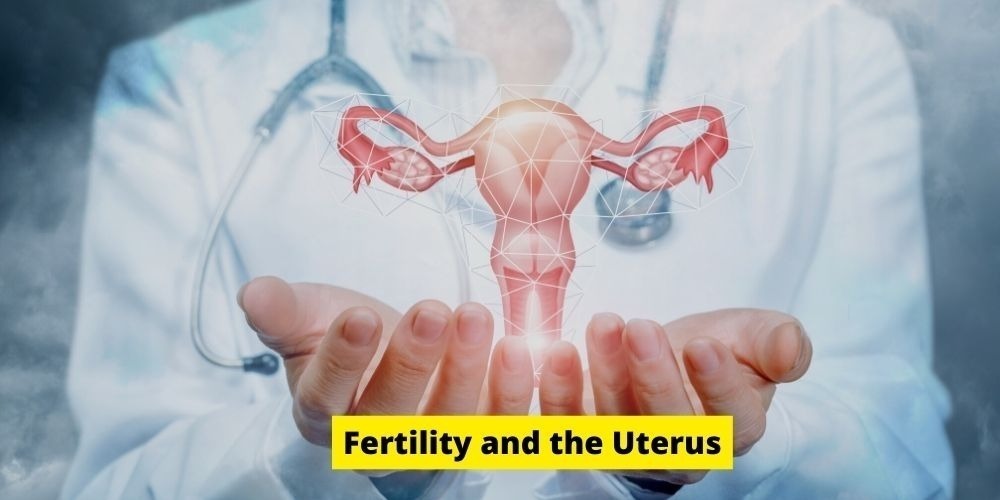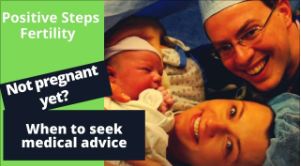If you are struggling to get pregnant, it is important to consider the health of your uterus. Many factors can affect the health of the uterus, including PCOS, endometriosis, fibroids, adhesions, and age. If you suspect that you may have a problem with your uterus, it is important to see a doctor for a proper diagnosis and treatment. With the right diagnosis, treatment, and support, it is possible to achieve.
Your uterus is an amazing organ. It can expand to hold a baby, then shrink back down after birth. So how do you know if your uterus is healthy? You might be thinking, “Oh, that’s easy! You just ask yourself: Am I still having periods?” The answer is yes and no.
While periods are a great sign that everything is working as it should be in your reproductive system, they’re not the only indicator of uterine health.
Uterine health is important regardless of whether you’re trying to conceive, but examining the uterus can be a crucial component to understanding your fertility journey. Let’s discuss how a fertility specialist determines the health of your uterus.
How do you know if your uterus is healthy?
Your uterus is a muscle that can be strengthened with exercise, just like any other body part. It’s also the organ that holds your baby during pregnancy and releases an egg every month during ovulation.
If you suspect something might be wrong with your uterus, here are some symptoms to look for:
- Painful periods or cramping
- Bleeding between periods
- Frequent urination or urinary tract infections (UTIs)
Symptoms of UTIs, for example, develop quickly. They include the urge for frequent urination, often accompanied by pain or burning sensations in the urethra. Additional symptoms include soreness in the abdomen, back, or obliques.
If you are experiencing symptoms of a UTI or any of the other concerning signs listed above, it is time to have your uterus tested. While this seems like a daunting prospect, uterine tests are common and specialists can use several different methods to help diagnose any potential problems that could affect fertility.
Hysteroscopy is a common test of the uterus.
In order to check on your uterus, your doctor will likely do a hysteroscopy . This is an internal examination of the uterus that requires a small scope to be inserted through your cervix. The procedure is usually done in a doctor’s office or clinic and can help detect uterine fibroids, polyps, and other issues.
A hysteroscopy may also be used as part of treatment for some issues affecting the uterus such as endometriosis or adenomyosis (a condition where endometrial tissue grows into muscular walls).
Endometriosis can influence fertility in several ways: distorted anatomy of the pelvis, adhesions, scarred fallopian tubes, inflammation of the pelvic structures, altered immune system functioning, changes in the hormonal environment of the eggs, impaired implantation of a pregnancy, and altered egg quality.
Hysterosonography (HSG) can also be used to diagnose a uterus.
If you’re trying to get pregnant and suspect that your uterus isn’t the best shape it can be, a hysterosonography (HSG) is a great way to find out.
According to the American College of Obstetricians and Gynecologists, “Hysterosalpingography (HSG) is an X-ray procedure that is used to view the inside of the uterus and fallopian tubes. It often is used to see if the fallopian tubes are partly or fully blocked. It also can show if the inside of the uterus is of normal size and shape. All of these problems can lead to infertility and pregnancy problems.”
HSG tests are often done in a hospital or doctor’s office, with one of three different methods:
- Dilatation & Curettage (D&C)
- Intravaginal Color Flow Doppler Hysterosalpingogram (ICF) with Saline Containing Gel Foam
- Hysterosalpingoacoustic Emission (HAE)
The HSG test itself takes about 20 to 30 minutes and usually goes like this:
- You’ll need to drink a clear liquid that contains a small amount of contrast, which helps make the images clearer. The liquid will be taken by mouth and may also be inserted vaginally, depending on what is best for the patient.
- The fluid flows through your cervix into your uterus and creates pictures of its interior surfaces.
How ultrasounds can help assess the health of your uterus.
Ultrasounds can be used to check for uterine fibroids, polyps, and cancer. Fibroids are benign (noncancerous) growths on the outside of the uterus that develop from muscle cells in the wall of the uterus. Uterine polyps are small glands that form on top of or inside a woman’s reproductive organs, including her ovaries and uterus.
Uterine cancer is rare but deadly when it spreads beyond the lining of your womb (endometrium). Women with endometrial cancer often experience abnormal bleeding or spotting between periods or after menopause.
Ultrasounds can help a fertility specialist assess several hurdles that might be hindering your ability to get pregnant.
How our Parryscope fertility testing offers a better approach to diagnosing uterine problems.
The Parryscope diagnostic approach evaluates the three critical factors in a woman’s fertility:
- Ovarian Egg Reserve,
- Blockage of the Fallopian Tubes,
- and the uterus’s Suitability for Embryo Implantation and Successful Pregnancy.
Understanding the uterine effect is crucial in evaluating infertility causes, as many instances of infertility are due to a woman’s fertilized egg failing to implant in the uterus for development. Issues with the uterus may also cause miscarriages.
Our technique is as safe if not safer than alternative approaches, with likely fewer infections (a less than .2% infection rate) and rare vasovagal events and far less painful to patients. Only 0.2% experienced maximum discomfort with the Parryscope technique, compared with 32% for HSG testing.
10 ways uterine problems can affect infertility.
- Uterine anomalies: structural abnormalities in the uterus, such as a septate uterus or a bicornuate uterus, can make it difficult for the fertilized egg to implant and grow properly
- Luteal phase defect: when the second half of the menstrual cycle is shorter than normal, which can make it difficult for the fertilized egg to implant in the uterus. This can be caused by hormonal imbalances or other underlying conditions.
- Uterine fibroids: benign tumors that grow in the uterus and can cause heavy periods, pain, and difficulty getting pregnant.
- Adhesions: bands of scar tissue that can form inside the uterus, fallopian tubes, or abdomen, they can make it difficult for the egg to travel from the ovary to the uterus, and for the sperm to travel to the egg.
- Endometriosis: is a condition in which the lining of the uterus, called the endometrium, grows outside of the uterus and can attach to other organs, such as the ovaries or fallopian tubes, which can cause pain, heavy periods and make it difficult to conceive.
- Polycystic ovary syndrome (PCOS): a condition in which the ovaries produce too much androgen, a male hormone, which can disrupt ovulation and make it difficult to conceive.
- Turner syndrome: a genetic disorder caused by the absence of one of the two X chromosomes which can lead to recurrent miscarriage.
- Age: As women age, the number and quality of their eggs decrease, making it more difficult to conceive. Additionally, the risk of miscarriage and chromosomal abnormalities in the fetus increases with age.
- Hormonal imbalances: certain hormonal imbalances can interfere with ovulation, making it difficult to conceive.
- Uterine infections: Certain uterine infections can create an inhospitable environment for the fertilized egg, making it difficult for the egg to implant and grow properly.
It’s clear that the uterus is essential to a woman’s overall health and testing it can reveal important factors that affect women’s fertility. If you are experiencing any symptoms described above, or if you’re having trouble conceiving, it is time to reach out to a specialist who can provide some answers.
Your health matters. Fertility journeys can be at times frustrating and confusing. If you’re feeling that way, don’t suffer in silence. Seek help. Find answers. Find Peace. Reach out to a specialist today.




